

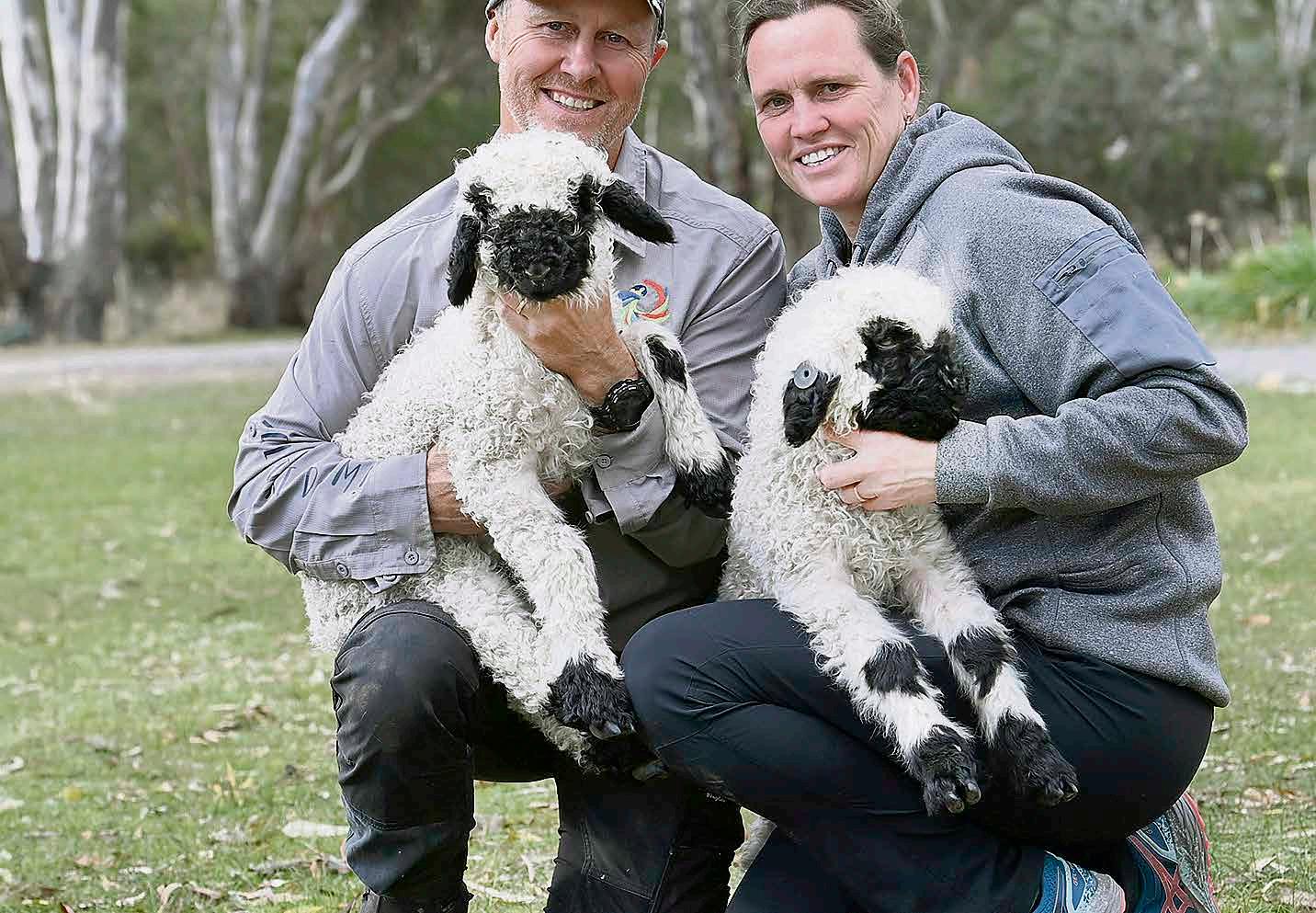
Tim and Belinda Wethers are breeding rare Valais Blacknose sheep on their Pomonal hobby farm. Traditionally used for meat and wool in the Swiss highlands, the breed was critically endangered before exporting supported breeding. Story, page 33.
Picture: PAUL CARRACHER


































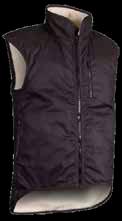

Page 23 Wednesday, May 29, 2024 www.theweeklyadvertiser.com.au FENCING MATERIALS, GATES & STYX MILL JACKETS AND VESTS www.dmdagents.com.au Facebook @dmdnhillhorshamstawell NHILL 95-97 Nelson Street, Nhill (03) 53 912 106 nhill@dmdagents.com.au HORSHAM 105 River Road, Horsham (03) 53 812 828 horsham@dmdagents.com.au STAWELL Nev Routley 0428 584 333 nevilleroutley@dmdagents.com.au PERFECT FOR THESE COOL AUTUMN MORNINGS • Wool with oil skin outer • External zipped chest pocket • Lined side hand warmer pockets • Sizes Small to 3XL • Made in New Zealand DMD ARE STOCKISTS FOR WARATAH FENCING PRODUCTS, CYCLONE GATES & MARKFI GATES 95 Nelson Street, Nhill CALL 03 5391 2106 Proudly brought to you by: May 29, 2024
A growing breed



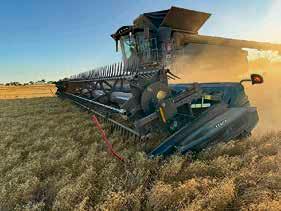
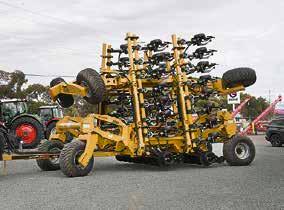














Page 24 Wednesday, May 29, 2024 www.theweeklyadvertiser.com.au JOIN US FOR A DAY FULL OF DISPLAYS OF OUR WIDE RANGE OF TRACTORS, ATTACHMENTS & MACHINERY! Opportunity to meet the representatives of each brand we sell! Food, drinks & coffee van available on-site NARACOORTE CUSTOMER OPEN DAY – FRIDAY, MAY 31, 2024 WHERE: 8 Deviation Road, Naracoorte WHEN: FRIDAY, MAY 31 from 10am YOUR LOCAL MF DEALER MASSEYFERGUSON.COM.AU 0% at Traction AG Traction Ag Horsham 135 Stawell Road HORSHAM Phone: 03 5381 1385 sales@tractionag.com.au | www.tractionag.com.au *Offer ends 29th February 2016, while stocks last. Final installation by 30th November 2016. 0% finance to AGCO Finance customers fourth month. 5 annual payments commencing 6 months after installation. Terms and conditions apply. MASSEY FERGUSON®, MF®, the triple-triangle logo® is a worldwide brand of AGCO. © 2015 THIS FRIDAY Traction Ag HORSHAM 135 Stawell Road Phone: 03 5381 1385 Traction Ag NHILL 6 Brougham Street Phone: 03 5391 1144 Traction Ag NARACOORTE 8 Deviation Road Phone: 08 8762 0955 www.tractionag.com.au

Dairy ‘silly season’
It’s known in the dairy industry as the silly season: the lead up to the announcement by dairy processors of the opening milk price.
This year, one thing is certain.
The price will be down on last year’s high by about 10 percent.
As the old saying goes, farmers are used to being price takers.
As major exporters of agricultural produce we are exposed to the vagaries of global markets, often distorted by subsidies and tariffs.
I find the history of the dairy industry in Victoria as a fascinating study of economic extremes.
For much of last century, the fresh milk price was carefully managed by the State Government and dairy farmers had production quotas. Interstate trade of drinking milk was also restricted.
Dairy farmers were the beneficiaries of an artificially high price.
Victoria has always been by far the largest dairy producing state, and when there’s ample supply, there’s pressure on prices.
Something had to give and in the year 2000, the State Dairy Authorities were disbanded and the milk price deregulated.
Nearly two billion dollars was spent on compensating dairy farmers for their loss of quotas.
Farmers who’d been used to

Country Today
quotas and artificially inflated incomes were suddenly exposed to the free market.
The thinking at the time was that the less efficient farmers would take compensation and get out of the industry. Which certainly happened.
But nearly 25 years later and the industry is still hemorrhaging.
Since 2000 the number of dairy farmers nationally has fallen from nearly 13,000 to 5000 in 2020, marketing and research organisation Dairy Australia shows.
It’s estimated that nearly 10 percent of dairy farmers have left in the past 12 months, with many either getting out of farming altogether, or selling their cows and converting to beef production.
A major catalyst was the decision in 2016 by the two largest processors at the time, New Zealand owned Fonterra and the dairy co-operative, Murray Goulburn, to ask farmers to repay them for what they said was overpayment.
In simple terms, the highly competitive opening milk price had been set too high, the global market for milk products fell, and the
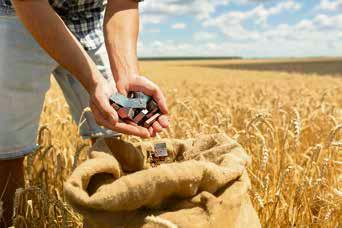
processors say they were losing money.
Farmers could either take a lower price for future milk production or take out loans with the processors to re-pay the money. It was nothing short of a disaster.
The troubled Murray Goulburn was accused of unconscionable conduct by the ACCC and of making false and misleading statements in contravention of consumer law.
Managing director Gary Helou, only a few years earlier, had been lauded as a hero of the industry for negotiating a secret deal with Coles Supermarkets for the notorious discounted milk Canadian giant, Saputo.
The result of this market manipulation was the ACCC intervening and bringing on the mandatory code of conduct, which included opening milk price where processors must state the minimum price by 2.30pm on June 1.
That’s well and good when the demand is high, but that price has to apply for the whole supply period. In my view, when global markets are strong, it works in farmers’ favour. But it could be seen as market manipulation in a different guise and it will be fascinating to see if history will repeat itself and free market pressures will prevail.
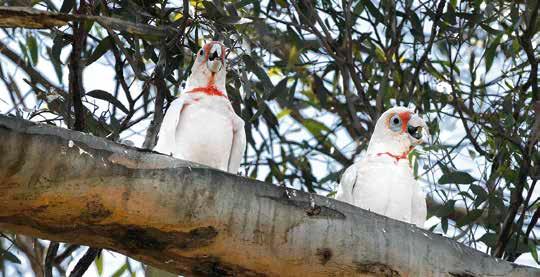
Corella management grants
State Government grant funding is now available to organisations and individuals to address agricultural, infrastructural, environmental and social impacts of corellas in the community.
Corellas cause damage to crops, trees, buildings and other assets – in Horsham they have caused an average of $33,000 damage each year to council infrastructure, including defoliating shrubs and trees, damaging turf at ovals and reserves, chewing holes in shade sails, chewing aerial and lighting wiring, and chewing the seal of bike paths.
The Corella Management Grants Program guidelines align with the Victorian Corella Strategy 2022-2032, which promotes a living with wildlife approach and a positive attitude to corellas as part of a broader human-wildlife management strategy. The grants program aims to achieve specific outcomes, including managing the impact of corellas in the community, utilising non-
lethal control methods, better evaluation of the financial impacts of corella damage, trialling and researching new control methods, and review of the social, economic and environmental implications of management practices. Corellas are native wildlife protected under the Wildlife Act 1975. Grant funding is available to committees of management, individuals experiencing management issues on their land, local government authorities, private sector businesses and agencies, agricultural industry, Traditional Owner organisations, research institutes, not-for-profit organisations, and other land managers, such as schools, sporting organisations, and recreation reserves. To be eligible for funding, applicants must be the designated land manager of the project site or have permission of the site’s land manager to undertake the project. Applications must be submitted by June 3 at wildlife.vic.gov.au/grants/corellamanagement-grants-program.
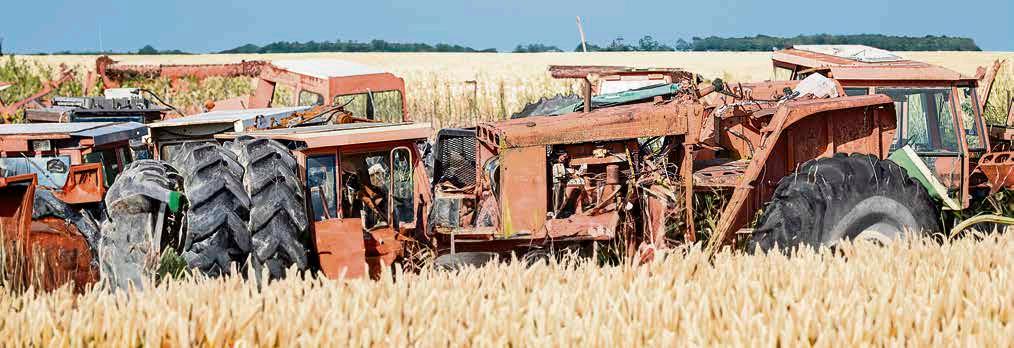

Page 25 Wednesday, May 29, 2024 www.theweeklyadvertiser.com.au Manhari Metals are one of the largest exporters in Victoria. With locations in Horsham and Ararat, we are committed to giving you the best prices for all your scrap metals. Join the region’s biggest clean up... YOUR FARM! It’s harvest time at Manhari Metals! EOFY is approaching and... Make this sowing season easier with a little more in your bank! For more information contact Manhari Metals: HORSHAM: 42 Hamilton Road – 5381 0443 ARARAT: 169 Elizabeth Street – 5352 3866 ✓ Copper (Clean & Domestic) ✓ Brass (Clean & Domestic) ✓ Insulated Copper Wire ✓ Aluminium (Clean & Domestic) ✓ Aluminium Wheels ✓ Aluminium Cans ✓ Stainless Steel ✓ Lead ✓ Batteries (Car & Truck) ✓ General Scrap (Iron & Steel) Copper - up to $11 per kg! Brass - up to $7 per kg! *conditions apply This DogPro 95 Nelson Street, Nhill Proudly brought to you by:
with Libby Price






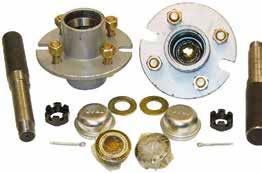






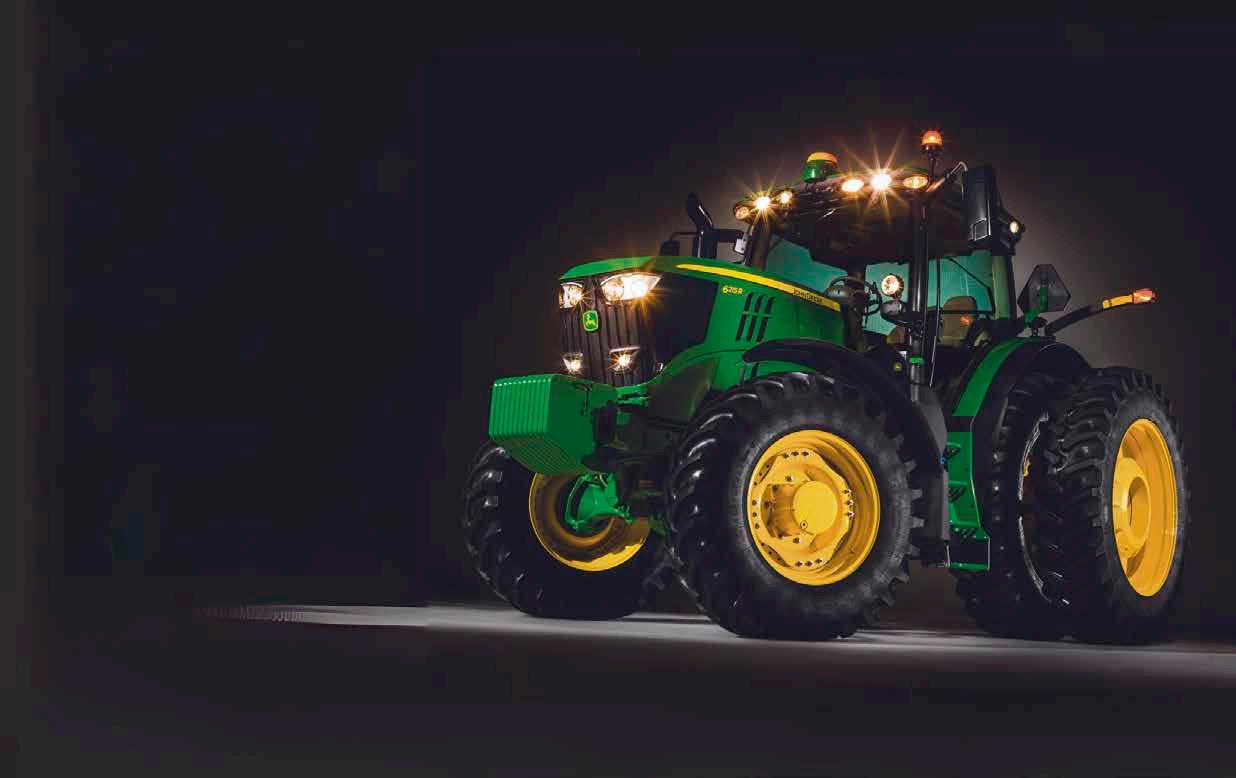
Page 26 Wednesday, May 29, 2024 www.theweeklyadvertiser.com.au 9 McLoughlin Rd, Ararat Vic 3377 • Ph 0429 825 060 Email: info@plasticfusion.com.au Web: www.plasticfusion.com.au for all POLY REPAIRS & WELDING Mobile Poly Repair Specialists • Rainwater & Cartage Tanks • Boomspray Tanks • Specialist Plastic Fabrication • Plastic Fuel Tanks • Repairs to Water Troughs • Repairs to Fruit Bins SKF Distributor TRAILERS! 14B Sloss St, Horsham | (03) 5381 0800 | Fax (03) 5381 0801 Wimmera Bearings stock a huge range of trailer parts, so when building or repairing a trailer, come and see us!

Farmers waiting to catch a break
BY BRONWYN HASTINGS
Maintaining a positive outlook, but with one eye on the sky, farmers are still awaiting the rain to mark the autumn break and signal the start of the growing season.
Despite it being the driest autumn in the past 20 years, many of those 20 years have seen farmers dry-sowing.
Sheep farmer Tim Leeming said he was concerned about what he was seeing, not just in the landscape, but in people.
“I thought we should bring people together over an afternoon to talk about how to handle the late break,”
he said. Initially predicting 50 to 100 people, more than 300 attended a field day at Nareen last week.
“The dry years give you a lot of new experiences and teach you a lot – in 2005 the break was the third week of June,” Mr Leeming said.
“It was a bit of a shocker and it’s very much instilled in my memory.
“I took note of what I had done and what I could do better, and came out with strategies, like early weaning of lambs off their mums, and containing sheep with feed so they’re not wasting energy and turning your farm into a dust bowl while they wander around looking for feed.”
Mr Leeming said there was a multi-
tude of things to think about in maximising lamb survival.
“About 70 percent of the audience at the field day are lambing ewes in the next month, and another 10 to 15 percent are lambing in the month after that,” he said.
“It’s important to have focus on looking after the ewe appropriately during late pregnancy and lactation, at their highest nutritional demand.”
Paddock feed shortfall forces assessments and decisions around the supply of feed, purchase costs, agistments or the sale of stock.
Seasonal risk agronomist Dale Grey said dry conditions were widespread.
“The autumn break is two or three

DONATION: Mike McMurtrie and Nick Watson with a donation of bales of barley, oatenwheat, and vetch hay from Sea Lake and Berriwillock farmers.
Generous farmers help Pomonal
May 13 marked three months since the community of Pomonal was impacted by bushfire. While the community is slowly recovering, there are stories of some kind and generous donations, including from farmers in the Sea Lake and Berriwillock districts.
The farmers had heard of the effect of the Pomonal fire, and quickly realised there might be a need for hay and fodder for livestock in the area. They contacted Pomonal publican Col Macaffer, of Barney’s Bar and Bistro, to find out if help was needed and suggested a couple of truck loads of hay would be available.
Mr Macaffer contacted John Matthews, a local volunteer with Pomonal Community Resilience Group, and advised that a couple of truck loads of hay would come from Sea Lake and Berriwillock in a week or so to assist with feeding the animals.
After a few phone calls and some quick-
thinking involving Mr Matthews, Col and Susie Macaffer, Mike McMurtrie and Jill Miller, the location for the hay and the ability to unload it was organised.
On March 1, photos of two B-Double trucks of hay were sent to the Pomonal volunteers, who realised that two truckloads would be too much.
Farmers at Dadswells Bridge were contacted and through some negotiating it was organised for one of the trucks to go to Dadswells Bridge and the other to Pomonal.
On March 2, one B-Double load with 59 large square bales of barley, oaten-wheat, and vetch hay arrived at Pomonal and the other load of 58 bales went to Dadswells Bridge.
The hay has meant a lot to the people with livestock who had lost fences and grass from the fire, allowing livestock to stay in situ and receive the feed they needed.
weeks later than average for the Wimmera, at this point, but Ararat would normally expect a break a lot earlier, so that region is unusually dry,” he said.
“Even if it rained tomorrow, feed is going to be hard to come by until early spring, because it’s so cold.
“However, this weather is not unusual.
“In the millennium drought periods there was a lot of late breaks and a proliferation of dry sowing started.
“The mercy of a good spring will make up for a later start, but it’s certainly very challenging for everyone.”
Mr Grey said there was a big disconnect – about 30 to 40 centime-
tres – from the surface to where the moisture starts in the soil, with about 30 to 40 millimetres of rain needed to join it up.
“Looking at about 12 models from around the world, the forecast is completely neutral for the Wimmera,” he said.
Agronomist Nick Zordan said there had been a relatively good start to the sowing season.
“Everyone is feeling positive, still, the usual canola, cereal and pulses are going in without delays. Some programs have been adjusted for the dry sowing season – now we just need a start,” he said.
MLA board members sought
Meat and Livestock Australia is seeking to appoint three non-executive directors to its board.
The board provides guidance and oversight of the management and performance of MLA in delivering its strategy.
The board operates under corporate governance and risk management frameworks to ensure producer levies, government matching dollars and partner funds are invested effectively to protect the continuing prosperity of the Australian red meat and livestock industry.
Alongside a broad understanding and genuine interest in the Australian red meat industry, candidates with experience and extensive commercial skills in the following areas are encouraged to apply:
• Finance, audit and risk experience in agricultural industries.
• Product promotion, strategic marketing and market development experience.
• Early adoption experience and-or commercial delivery in the red meat sector.
Directors are nominated through the selection committee and appointed by members at MLA annual general meetings for a three-year term, with retiring directors able to nominate for re-election.
For further information on MLA and an information pack outlining the application process, people can visit www.mla.com.au/director guidelines.

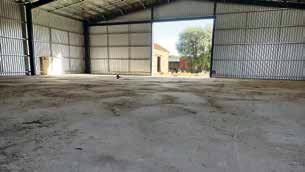





Page 27 Wednesday, May 29, 2024 www.theweeklyadvertiser.com.au 92-100 Golf Course Road, Horsham www.cropopti.com.au Laughs, Concerns & a lot of talk about Crop! Travis Hair 0437 778 202 | Kate Hair 0438 546 918 | Matt Beddison 0429 007 810 | Wazza Stone 0437 785 452 | Bridget Dorrington 0477 290 937 | Mark Schulz 0488 198 199 Scan now to listen concrete cosmetics Brett Campbell 0438 596 682 | cambo098@gmail.com BEFORE AFTER • Spray Pave • Acid Staining • Concrete Grinding • Epoxy Floors • Exposed Aggregate Cleaned & Resealed DRIVEWAYS • ALFRESCO’S • SHED FLOORS This DogPro 95 Nelson Street, Nhill CALL 03 5391 2106 Proudly brought to you by:
















your trusted local dealers for....... your trusted local dealers for....... 8 Hamilton Road Horsham 3400 Phone: (03) 5382 6103 Website: www.wimmeramalleeag.com.au
Turkey breed takes flight
BY BRONWYN HASTINGS
Travellers on the Western Highway could be forgiven for not knowing where Daryl Deutscher’s turkey farm is –their eyes drawn to the Giant Koala, situated directly opposite at Dadswells Bridge.
With his name synonymous with the Australian turkey industry, Mr Deutscher grows and processes birds on his open range, 32-hectare farm for a variety of meat products.
But turkey drumsticks, steaks, sausages and chops are not all that’s on offer from these majestic birds.
Mr Deutscher has assisted in the expansion of a rare turkey feather business in America.
With farms in Indiana and Michigan, Kevin Porter began breeding turkeys in 1990 to create and harvest a variety of feathers from different breeds.
Part Mohawk, Mr Porter used the unique feathers in creating Native American-style crafts, before selling the feathers alongside his crafts, which expanded into the online and global feather markets.
His goal was to be a one-stop shop for rare varieties.
Mr Porter’s interest in producing rare turkey feathers led him to Mr Deutscher, who had produced an original ‘painted’ turkey around 2001.

In 2015, Mr Deutscher worked with Mr Porter to have fertile eggs exported to America, as the painted turkey seemed to only exist in Australia and Finland.
From these eggs came a painted tom – a male turkey – that Mr Porter used to artificially inseminate the smaller heritage birds.
Using smaller birds would bring the size of future generations down so they could breed naturally.
In his book, The Painted Turkey, Mr Porter wrote that he had to learn how to do artificial insemination in turkeys, as Mr Deutscher’s birds
have ‘commercial’ broad-breasted blood in them.
‘I studied all the books I had on the subject and watched some videos that Daryl shared with me, with the method that he uses with his birds… I was determined to do whatever necessary to preserve this gene.’
Mr Porter’s website – porter turkeys.com – features a comprehensive list of breeds, and a calculator so people can predict what offspring will result from a combination of different sires and dams.
Mr Porter’s 30 years spent raising

and breeding turkeys led him to specialise in the feather colour genetics of rare birds.
Mr Deutscher, whose childhood hobby evolved into a business in the 1970s, also has varieties of rare breeds, including Bourbon Red, Buff, Blue, Black Bronze, Cinnamon, Crimson Dawn, Narragansett, Oregon Grey, Royal Palm, Slate, and Sweetgrass.
All birds are raised, grown and processed on-site and in a short timeframe, resulting in less stress on the birds.

Money to unite communities
Birchip Cropping Group will use a $19,130 grant from the Federal Government’s Future Drought Fund to support students to join farmers, agronomists and industry representatives at the BCG Main Field Day later this year.
The grant is aimed at boosting social drought resilience and mental health in regional communities.
Round one of the Small Network grants, funded through the fund’s Helping Regional Communities Prepare for Drought Initiative, has supported 29 projects to host events, training, networks and courses or community infrastructure, to make it easier for communities to manage drought conditions.
Victorian Senator Jana Stewart said BCG’s grant was just one example of how the government was helping communities to prepare for dry conditions.
BCG will use the money to assist secondary students from the North Central Local Learning and Employment Network to join a specialised stream aimed at highlighting career opportunities in agriculture and in conducting local research.
“The Small Network grants have an emphasis on managing the mental health of the whole community as they deal with the economic downturns and the subsequent mental strain of managing droughts,” Ms Stewart said.
“This complements the Albanese Labor government’s drought preparedness work through the Future Drought Fund to make $100 million available each year for drought and climate related resilience initiatives, including on-farm sustainability.”
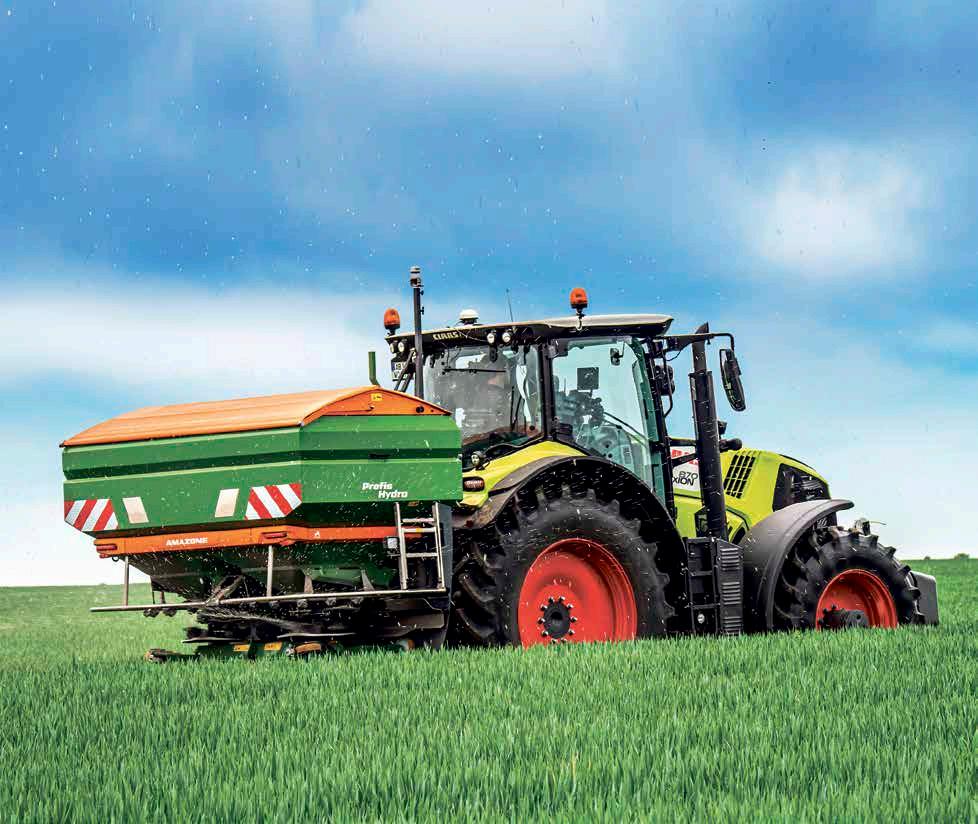

Page 29 Wednesday, May 29, 2024 www.theweeklyadvertiser.com.au at Site A54-61 Jade Hawker 0457 100 078 claas.sales@bigpond.com Precise spread patterns even at working widths of up to 45 m Monitoring and control of the application rate via the weighing system AutoTS integrated boundary spreading system GPS switch technology for up to 132 sections with ISOBUS Section Control 3200-5000 litre hopper capacity IN STOCK NOW From plus GST $48,000 This DogPro 95 Nelson Street, Nhill CALL 03 5391 2106 Proudly brought to you by:
IN THE MIX: Turkey farmer Daryl Deutscher on his Dadswells Bridge farm. Picture: PAUL CARRACHER
In The Paddock

With Simon, Jack & Charlie Blackleg in Canola

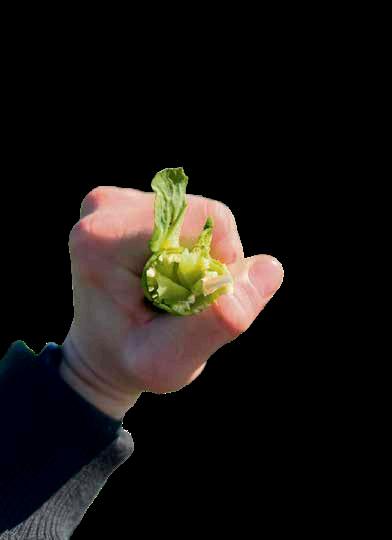

Blackleg, which is caused by the fungus Leptosphaeria maculans is a disease which can affect canola at all stages from cotyledon to pod fill. Blackleg is characterized by a lesion on the plant filled with tiny black dots which are fungal pycnidia or ‘fruiting bodies’.
Blackleg is a unique disease because the fungus will breed between populations, allowing it to quickly develop resistance to fungicides and overcome Major Gene resistance which is bred into all canola varieties. These Major Genes are often called blackleg groups and are best found in the GRDC Variety Guides which are produced each year. It is important to stay one step ahead of the fungus as once it has overcome or broken down the Major Gene, it renders it useless for controlling blackleg.
This breakdown has already occurred in several Major Genes with groups A, B and C overcome by the fungus. Groups D and F are still providing some level of resistance while group H provides the variety with 100% control of Blackleg throughout all growth stages. These do vary by area, however generally speaking the more canola is grown the quicker the fungus overcomes that Major Gene.
Groups A, B and C are still the most common with most Pioneer varieties having a combination of these groups.



DG Bidgee TT is one of the only varieties which has Group H resistance and therefore it is completely resistant to Blackleg, as seen in the picture of a 2023 Bidgee crop which has no sign of any Blackleg Stem Canker.
We have several management methods to help us control Blackleg and to help protect our Major Genes and delay the rate at which the blackleg groups that are still effective are overcome. Rotating your canola variety’s Blackleg Group is the preferred method, however a varieties yield potential often governs the feasibility of this practice.
Hybrid Canola seed is always treated with a fungicide seed treatment when bought new each season which is often Saltro Duo or IleVO which are both effective against Blackleg, however if using an open-pollinated (OP) variety where seed can be retained, it is important to use one of these products.
The use of Flutriafol on fertilizer will provide some meaningful protection for the crop during establishment however will likely run out of legs by flowering.
Post emergent fungicides can also be an option, however achieving a return on these is inconsistent due to varying conditions, yield potential and crop stage.
The potential for Blackleg to
influence yield in 2024 is generally lower than average due to our late break and canola establishment. The critical period for the disease occurs during flowering and the time of year this occurs.
When flowering occurs later there is less time for the fungus to colonize the upper canopy and cause yield loss. However, there is potential for higher Blackleg pressure during establishment and early growth due to this later establishment timing.
As always monitor your canola crop regularly for any signs of Blackleg throughout the growing season.
For any other questions surrounding Blackleg in Canola please contact Jack, Simon or Charlie at Nutrien Ag Solutions Horsham.

MARSHALL MULTISPREAD












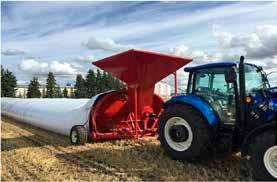



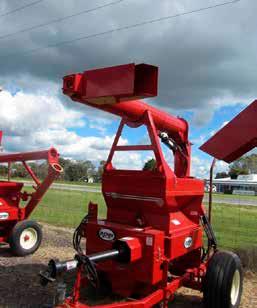



Page 30 Wednesday, May 29, 2024 www.theweeklyadvertiser.com.au Australian Distributor for VERTICAL FEEDMIXERS Contact the Distributors: EASTERN SPREADERS PTY LTD 9508 Murray Valley Highway, Kerang, Vic. 3579 Ph: 03 5450 3077 Mobile: 0409 691 226 or 0429 480 337 easternspreaders.com.au Quick & effective mixing. Complete and rapid emptying. What you put in your mix gets to your herd, consistently 10 to 40 cubic metre models available Australian Distributor for RENN ROLLER MILLS The ideal spreader for all types of granular fertilizers, lime, gypsum and manures. Spare Parts and Workshop Service available. 2.5 to 16 tonne models Optional i4M Variable Rate Control System, Weighing Systems, 3 Metre Track available .
Superior Feed Processing Performance 16” Roller Diameter 12”, 24”, 36” & 48” Roller Widths RENN Grain Baggers & Unloaders SITREX HAY RAKES Uses less chemicals and is not affected by windy conditions - no spray drift 1.8 to 12 Metre models See us at the Mallee Field Days, Speed, Vic - July 31 - August 1, 2024 12”, 24”, 36” & 48” models
ADVERTISEMENT
Find Nutrien On Facebook

New Morris air carts arrive Controlling foxes
Australiangrain growers could be in for an exciting moment when they next sow their crops following this week’s launch of the latest Morris 10 Series air carts.
In addition to larger capacities that will keep producers seeding in paddocks for longer and spending less time filling, the new carts feature technologies that are set to take seeding efficiency, accuracy and uniformity into another realm.
Distributed by McIntosh Distribution, the Morris 10 Series will complement small and large frame air carts from the manufacturer’s 9 Series.
Growers will have the choice of seven models from the 10 Series, offering capacities ranging from 20,890-34,701 litres in three and four-tank configurations and incorporating an integrated, stainless-steel liquid tank as well as small seeds ‘Optimizer’ tank.
McIntosh Distribution national Morris product manager Duncan Murdoch said in-line with previous tillage and seeding equipment releases from Morris, Australian fingerprints were all over the latest 10 Series, catering to local conditions and producers’ preferred machine setups.
Mr Murdoch said the carts had been tested during the past two

seeding seasons in Australia and several years prior in Canada.
“Three things we particularly focused on to assist the design were high draught loads in towbetween configurations, as well as operating in heat and dust –and we have taken those to the extreme in the past two seasons, also by sowing predominantly in dry conditions,” he said.
Mr Murdoch said there also was a strong Australian influence with the axle design, included to suit the industry preference for big single tyres rather than duals, as well as in the tank configuration, largely to achieve three similar granular tank capacities, or two similar larger tanks, with a liquid tank.
“The frame is a fully boxed and trussed design and it’s certainly over-engineered. If you look at the chassis on the 10 Series and on that of a crane, it’s the same strong design,” he said.
“It incorporates the Morris Duraloc interlocking technology that
has been carried through from Morris Quantum air drills.
“The bigger carts use a threepiece wheel rim and 201 rated tyres that can each carry 26.5 tonnes.
“We have set the tyre specifications in Australia and we haven’t spec’d it to be just enough – there is a lot of extra capacity with the tyres.”
Mr Murdoch said one of the most exciting drawcards expected to attract immediate grower investment in the 10 Series was the use of load cells under every granular tank, which would take seeding rate accuracy and uniformity to a whole new level.
“Load cells have previously been used on extra large Morris carts, but on both sides of the axle and front hitch to cover the entire machine – not on each individual tank,” he said.
“This is the solution to that hidden, unsaid, unknown, misunderstood truth of airseeding – the difference between the calibrated


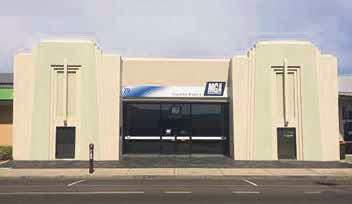


rate and the applied rate that occurs due to product density changes in tanks.”
A move to electric metering powered by a brushless alternator and driven by brushless motors provides next generation section control and assists accurate application of even lower seeding rates, which is another major attraction for producers.
Mr Murdoch said early brushed systems in the industry were unreliable, however, the technology had since improved considerably and they were now sealed from dust, helping to reduce wear.
The electric system also continues to use the renowned Morris spiral-fluted metering wheels.
Extending from the Morris 9 Series air carts, producers also can put a percentage of fertiliser into seed runs and accommodate different seed sizes by adjusting a single lever, avoiding the need for different metering wheels.
For more information, visit www. mcintoshdistribution.com.au.
Agriculture Victoria fox collections have recommenced, with the current bounty program continuing under the State Government’s new budget, announced earlier this month.
Considered the worst pest in Australia, foxes were introduced for hunting purposes in the mid-1850s and were declared a pest species 20 years later.
Foxes are thought to have played a major part in the demise and extinction of many ground-dwelling native species in the past 130 years and are a threat to at least 14 species of birds, 48 mammals, 12 reptiles and two amphibians.
The economic impact of foxes in Australia has been estimated at about $227.5-million each year, including $17.5-million in sheep production losses, $190-million in environmental impacts, $16-million in management costs, and $4-million in research costs.
Agriculture Victoria says fox control is best achieved with an integrated approach that combines the use of all suitable control tools, alongside monitoring fox numbers and damage so reinfestations can be treated. It is also recommended landholders work together simultaneously to cover a greater area.
Acceptable entire fox scalps will be collected from eligible members of the public at collection centres, including in Horsham, which will be open one day each month until October.
The bounty system is now digital, which streamlines the application process, reduces wait times at collection centres and allows participants to keep track of their applications.
For assistance, people can call the customer service centre on 136 186, and to apply, visit the bounty online registration page at agriculture.vic.gov.au/ biosecurity/pest-animals/victorian-fox-and-wild-dogbounty/digital-bounty-application-system.


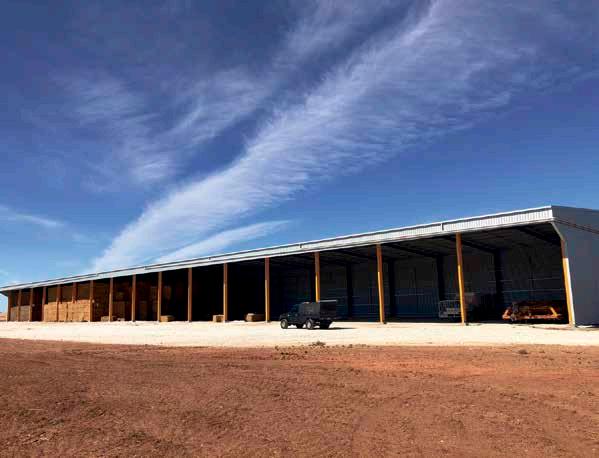

Page 31 Wednesday, May 29, 2024 www.theweeklyadvertiser.com.au AFSL No: 244601 79 Hamilton Street, Horsham Ph (03) 5382 8600 With over 50 years of local experience, specialising in Heavy Transport, Contractors, Farm & Crop we have the answers to all your general insurance requirements. How can we help? Quotes and premium Claims management Expert advice Automated payments Protecting Australians Since 1975 •ShedBuildersandErectors •Rural,Industrial&CommercialBuildings •Standarddesignsorfullycustomized •HaySheds •MachinerySheds •GrainSheds •Sheepyardcovers •AllShedFramesUniversalBeamConstruction •UsingAustralianmade building products Lot5KingDrive•P.OBox701Horsham,3402 Phone: 0353820257 •Fax: 0353811488 Email:horshamsteel@bigpond.com Website:horshamsteel.com.au RegisteredbuildersNo:CB-U-4846 EST.1980 LOCALLY OWNED & OPERATED FAMILY BUSINESS Brad Smith: 0417 166 309 •Greg Smith: 0419 896 621
collaboratively
This DogPro 95 Nelson Street, Nhill CALL 03 5391 2106 Proudly brought to you by:


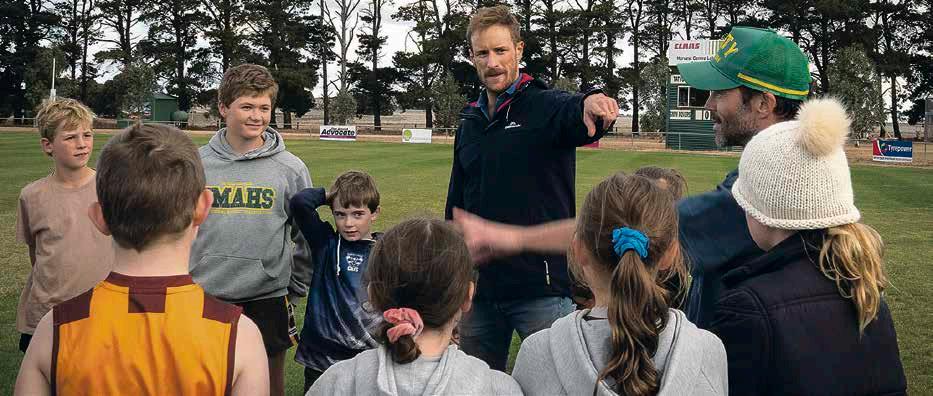
Film-maker makes her mark
BY LAUREN HENRY
Affable and entertaining, Tatyoon farmer Leila McDougall spoke at a Wimmera Women Connect breakfast last week about her ‘crazy journey’ to becoming a feature filmmaker.
The breakfast at Up Tempo Café, Horsham, on Wednesday, was also a chance for women to gather, meet new people and make connections.
Mrs McDougall’s passion for mental health advocacy, especially in the agricultural sector, led her to embark on making her first ever film.
Titled ‘Just a Farmer’, the movie featured in cinemas across Australia after its release in March, telling the story of about the devastating aftermath of a rural suicide for both the family and the wider community.
Mrs McDougall not only wrote the script, but she also played a lead role and hosted the shooting of the film on her Tatyoon property.
The film, directed by Simon Lyndon, features actors Joel Jackson, Robert Taylor, Damian WalsheHowling and Susan Prior, and tells the story of a wife left to manage an ailing farm and an alcoholic fatherin-law after her husband’s suicide.
The film explores generational trauma, love, loss, and the resilience of a farming community in the face
of tragedy. Her and husband Sean also funded the project, as well as undertaking a myriad of other roles to bring the movie to fruition.
Their daughter Vivien, a pet calf and plenty of district locals also feature in the production.
The story of Mrs McDougall, originally from Queensland before marrying Tatyoon farmer Sean, featured on the ABC’s Australian Story earlier this month.
“It was a four hour interview for Australia Story, and that’s when it came out publicly that I had been on anti-depressant medication since I was 20,” she said.
“When I moved to Tatyoon, fitting into a small country town was hard for me – my mental health plummeted.”
At last week’s breakfast, Mrs McDougall spoke about her personal connection with mental health, with her father living with bi-polar and her mother having attempted suicide many years ago.
She spoke about how she had witnessed many men in rural areas struggling with mental health with many self-medicating with alcohol.
“I always remember what my father, a former alcoholic, would say to me, ‘if you can’t go out without drinking you need to have a good hard look at yourself’,” she said.
Mrs McDougall said she had based

characters in the film, such as Owen, on people in her own life.
“I hope the film addresses all those things I’ve come across in a small community,” she said.
“Everyone who has lost someone to suicide have all had different stories, but there has been common themes – depending on if they were a partner, a parent or a child.
“There’s always a silence after
“When I moved to Tatyoon, fitting into a small country town was hard for me – my mental health plummeted” – Leila McDougall
NFF seeking young leaders
National Farmers’ Federation, NFF, is encouraging applicants for its flagship leadership and capability development program for young and emerging leaders in Australian agriculture.
Supported by Telstra, the National Agricultural Leadership Program provides targeted activities and unique experiences in leadership, advocacy, policy development, governance, communications and media.
It uses a whole-of-agriculture perspective to build networks across industry and create the next generation of leaders for Australian agriculture.
Targeting participants younger than 35, the program provides a unique opportunity for emerging leaders to develop a policy project guided by NFF general managers and senior industry leaders.
NFF president David Jochinke highlighted the opportunities the program produces for those interested in the decision-making process and policy development in the industry.
“Participants have the opportunity to tour Australian Parliament House and meet with federal politicians and government departments,” he said.
“By fostering a young person’s interest in advocacy, we are able to showcase the next generation to our political leaders and develop a network of skilled professionals to lead our industry into the future.”
Launched in 2021, the program has a proud alumni base of 20 graduates.
Past participant Abbey O’Callaghan has used the experience to develop a policy that complements her passion for strengthening the agricultural workforce.
“The National Agricultural Leadership Program was a fantastic opportunity for a behind the scenes look at how policy decisions are made, best practice approaches to advocacy and the development of policies,” she said.
“My policy project was all about attracting people from non-traditional backgrounds to the agricultural workforce – which has been highly relevant and valuable in my role as manager, workforce delivery at AgriFutures Australia.”


suicides. But nine people die every day in Australia to suicide.
“We need to be better at making it easier on the people who are left behind.”
• If you, or someone you know, needs help, phone Lifeline on 13 11 14, Kids Helpline on 1800 55 1800, 13YARN on 13 92 76 or Suicide
Call Back Service on 1300 659 467.
In an emergency, phone triple zero.
The program starts in July, going for five months, including participants coming together for a three-day advocacy retreat in Canberra, where they will work on a policy project and are matched with an industry leader as part of an ongoing mentoring program.
The program is free for all participants, supported by an NFF member organisation, and supports long-term development and learning.
Applications are open until June 3. For more information, visit nff.org.au/nalp.
ON SET: Actors Joel Jackson and Damian Walshe-Howling talk to children from the Tatyoon district who played extras in the film ‘Just a Farmer’, which was produced by Tatyoon couple Leila and Sean McDougall.
This Weeks Special DogPro Working Dog $25.00 20kg Bag “Like” Us On Facebook 95 Nelson Street, Nhill CALL 03 5391 2106 Proudly brought to you by:


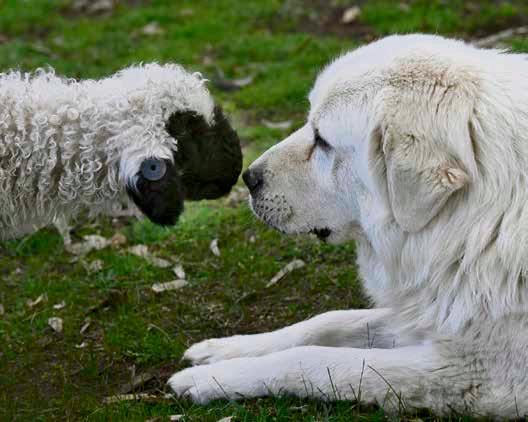
Hobby farmers growing rare flock
BY BRONWYN HASTINGS
Tim and Belinda Wethers are breeding what is known as the ‘cutest sheep in the world’ – the Valais Blacknose.
A breed known to Australia for only three years, Mr and Mrs Wethers are hoping to build a flock at their Pomonal hobby farm.
Mrs Wethers said the blacknose was listed as critically endangered – in 1983 there were 9940 of the breed in the world, by 2014 there were 17,000.
“They were a very rare breed, but over the past few years there has been a big drive that has seen them exported from Switzerland into the United Kingdom, New Zealand, America and Australia,” she said.
“With a lot of breeding programs, they are no longer endangered.”
Despite its origins in the Alps, the breed is accustomed to the varied climates it’s now living in.
“They’ve been great. They have delivered really easily, they are low maintenance, they do have to be shorn twice a year, but other than that, they are easy, friendly sheep – more like a dog, really,” Mrs Wethers said.
The Wethers family is also running ostriches, alpacas and other sheep on their farm, which the sheep socialise with across the 80 acres.
“We, along with many other people,
“They’ve been great. They have delivered really easily, they are low maintenance, they do have to be shorn twice a year, but other than that, they are easy, friendly sheep – more like a dog, really”
– Belinda Wethers
have been interested in the blacknose for many years,” Mrs Wethers said.
“When the opportunity came up to purchase some, our son was in hospital.
“We decided to refinance our house to buy them, thinking they’d bring in a different source of income, eventually, and enable us to be home a bit more, to meet our son’s needs.
“He loves them, loves coming out to look after them, letting them out and putting them away each day.”
The blacknose was traditionally bred for meat, with wool as its by-product.
The coarse wool was suited to garments made for use in the Alps.
“At this stage, the meat is too valuable to eat, but the quality is meant to be quite exceptional,” Mrs Wethers said.
“The wool dyes and felts up really well.
“To any hobby enthusiast it would be quite desirable, but there’s not a

market at the moment. It will be quite popular as prices come down.”
All the ewes were purchased as embryo transfers, from host Dorcas.
“We are hoping to breed up and get a

flock and then get a ram and maintain pure genetics,” Mrs Wethers said.
“Some breeders in Australia are producing hybrid sheep and after the fifth generation they can register them, but
we want to have a stud, have pure genetics at our farm.”
The Wethers are looking to run a flock of about 30 sheep and eventually sell the offspring.

This DogPro Proudly brought to you by:
PURE GENETICS: Tim and Belinda Wethers are breeding rare Valais Blacknose sheep on their Pomonal hobby farm. Pictures: PAUL CARRACHER
FUN RUN: The Wethers’ family pug Jock joins their Valais Blacknose sheep for a run.
MEET AND GREET: It’s one big, happy family on the farm.



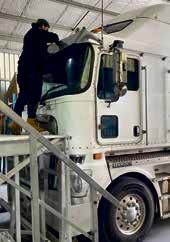


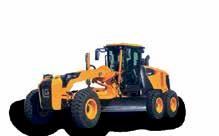







Page 34 Wednesday, May 29, 2024 www.theweeklyadvertiser.com.au Emmetts Horsham Emmetts Rupanyup FOR MORE INFORMATION CONTACT YOUR LOCAL EMMETTS BRANCH OR VISIT OUR WEBSITE www.emmetts.com.au Emmetts Swan Hill Emmetts Warracknabeal 105 Dimboola Road Horsham Vic 3400 6 Cromie Street Rupanyup Vic 3388 5617 Murray Valley Hwy Swan Hill Vic 3585 67 Henty Highway Warracknabeal Vic 3393 03 5382 9400 03 5385 5600 03 5036 4600 03 5398 0700 Emmetts Horsham Emmetts Rupanyup FOR MORE INFORMATION CONTACT YOUR LOCAL EMMETTS BRANCH OR VISIT OUR WEBSITE www.emmetts.com.au Emmetts Swan Hill Emmetts Warracknabeal 105 Dimboola Road Horsham Vic 3400 6 Cromie Street Rupanyup Vic 3388 5617 Murray Valley Hwy Swan Hill Vic 3585 67 Henty Highway Warracknabeal Vic 3393 03 5382 9400 03 5385 5600 03 5036 4600 03 5398 0700 Emmetts Horsham Emmetts Rupanyup FOR MORE INFORMATION CONTACT YOUR LOCAL EMMETTS BRANCH OR VISIT OUR WEBSITE www.emmetts.com.au Emmetts Swan Hill Emmetts Warracknabeal 105 Dimboola Road Horsham Vic 3400 6 Cromie Street Rupanyup Vic 3388 5617 Murray Valley Hwy Swan Hill Vic 3585 67 Henty Highway Warracknabeal Vic 3393 03 5382 9400 03 5385 5600 03 5036 4600 03 5398 0700 IN STOCK FOR IMMEDIATE DELIVERY MADE FOR PRECISION Emmetts Rupanyup FOR MORE INFORMATION CONTACT YOUR LOCAL EMMETTS BRANCH OR VISIT OUR WEBSITE www.emmetts.com.au 105 Dimboola Road Horsham Vic 3400 6 Cromie Street Rupanyup Vic 3388 5617 Murray Valley Hwy Swan Hill Vic 3585 67 Henty Highway Warracknabeal Vic 3393 IN STOCK FOR IMMEDIATE DELIVERY • Weigh scales • Section control • 3900L capacity • Full ISO control • Hopper Cover VICON EDW & GEO SPREADERS ^ Conditions Apply 60B Darlot St, Horsham (Next to Horsham Bearings) 0427 977 336 Did you know we also do windscreens for tractors, trucks, buses and other farm machinery! Contact Horsham Autoglass today to organise prompt repair or replacement. TOUGH WORLD. TOUGH EQUIPMENT. HIGH PERFORMANCE EASY MAINTENANCE BEST VALUE A new world of tough For further information liugongaustralia.com.au
Pushing farmers away
BY DAVID JOCHINKE
President, National Farmers’ Federation and Murra Warra farmer
An open letter to Prime Minister Anthony Albanese:
Dear Prime Minister, Earlier this month, for the first time in 39 years, farmers from across Australia determined that they no longer have confidence in your government to represent their interests.
This vote followed an unprecedented walk-out by farmers on your Agriculture Minister’s Budget address.
This is not how we usually operate at the National Farmers’ Federation.
Our members are professional business people, and we typically represent them in a professional and business-like way. But decision by decision, your government is pushing farmers away and eroding their trust.
Frankly they’ve had enough.
The appalling decision to ban live sheep exports from 2028 is just the latest example of your government’s refusal to support our industry – even when facts and science are on our side.
When asked why he’s choosing to destroy the livelihoods of farmers, shearers and truckies in West-

ern Australia, your Agriculture Minister simply answers ‘because we said we would’.
When pressed on why this commitment was made in the first place, he offers figures from a limited RSPCA survey suggesting it’s what Australians want.
That isn’t leadership.
Leadership is having tough conversations with voters and when facts change – as they have in the live sheep trade – changing policies to reflect this.
Your government has proven it’s willing to do this, but perhaps that’s only when votes can be gained in the process.
Beyond live sheep, we’ve been steamrolled on water buybacks by a minister who didn’t want to hear the alternatives.
We’ve sat with her and her bureaucrats advising of the impacts
and pleading to save the farms and the communities where they are located – but our voices have been ignored in favour of deals with the Greens.
We have talked about the shortcomings of the pacific labour scheme, which your government has effectively abolished as one of the few workable labour schemes for farmers.
We’ve also had to fight against the biosecurity tax which was dumped on industry without notice and would have seen farmers subsidise their competitors to the tune of half a billion dollars over the next decade – thankfully managing to convince senators that this was bad policy after your government again wouldn’t listen.
You’ve been similarly unyielding on a planned superannuation tax which you embarked on, not realising farmers would be significantly overrepresented among those affected.
Prime Minister, as you face up to the dual challenges of anaemic growth and high inflation, it’s worth considering how your agricultural policies worsen that challenge.
By wiping billions from the value of our industry, you don’t just reduce the economy.
You sentence voters to a more expensive weekly shop. As Prime Minister and president of the NFF, this situation serves neither of us.
We both have a job to do.
The NFF’s role is to represent farmers and producers – we will not apologise for this – if we don’t do it, we are not doing our job and failing our members who are passionate about their farms, businesses and communities.
Yes, our members have lost confidence, but we are not giving it away – we remain committed to working with your government on things we have in common and the issues impacting on farmers to restore that confidence.
Things like working together to ensure farmers can be part of the solutions to climate change and sustainability challenges. Transparent competition policy and investing in Australian industry.
I believe that can be done if your government commits itself to hearing the voices of farmers over the rabble of niche interests, which seems to be dictating decisions at present.
I don’t believe you want to lead an anti-farming government, but the facts lay bare that you are.
Let’s work together to change that.

Burn-off warning
Following a year that saw Country Fire Authority volunteers respond to 815 incidents caused by escaped burn-offs, fire crews are urging landowners to take extra precautions before lighting up.
With fire restrictions now lifted across the state, residents are taking the opportunity to burn off grass, stubble, weeds, and undergrowth to maintain their properties.
While encouraged, CFA reminds people to monitor weather forecasts in the lead up to ignition.
In 2023, more than 22,500 volunteer hours were spent responding to incidents involving escaped private burn-offs.
CFA acting chief officer Garry Cook said the findings from the statistics were a timely reminder for private landowners to make sure they had enough people and water on hand to monitor, contain and extinguish their burn-off safely.
“We know burn-offs can flare-up several days afterwards, so it is important residents are consistently monitoring wind conditions before and after their burning day, while also notifying their neighbours to be mindful of smoke,” he said.
“The overarching message is clear – please don’t leave your burn-off unattended.
“Of the 815 escaped burn offs, 69 percent of them had no record of being registered and 113 required more than five CFA vehicles.
“If you light a fire to burn off, you own it. Registering it is important and may avoid unnecessary responses from CFA brigades, but it does not remove your responsibility.”
Burn-offs are registered using Fire Permits Victoria at www.firepermits.vic.gov.au or by calling 1800 668 511.
For more information on how to prepare properties and to burn off safely, visit www.cfa.vic.gov.au/ prepare.


Page 35 Wednesday, May 29, 2024 www.theweeklyadvertiser.com.au This DogPro 95 Nelson Street, Nhill CALL 03 5391 2106 Proudly brought to you by:



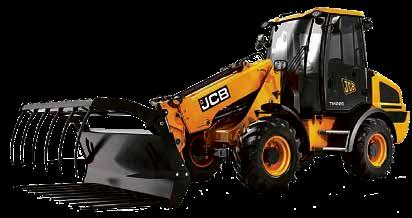
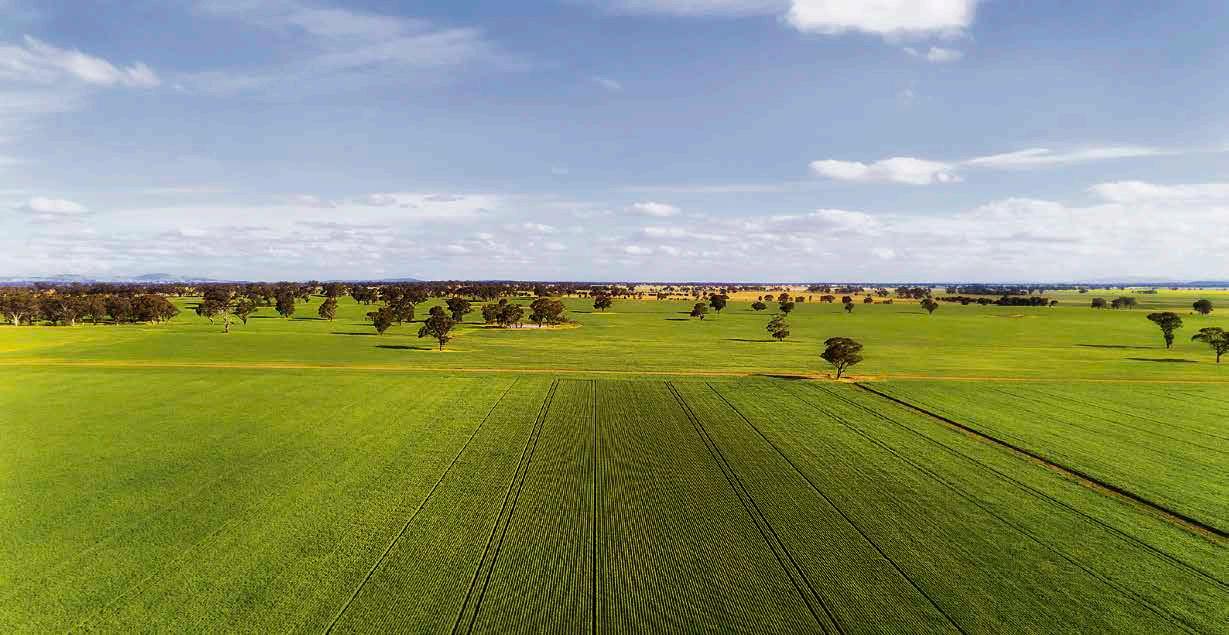








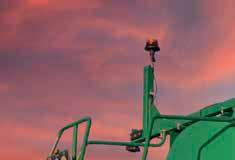
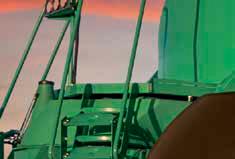
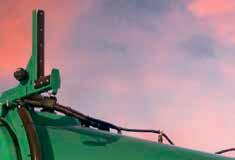




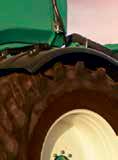

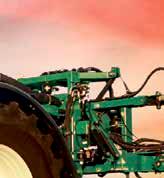




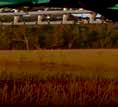






































































Page 36 Wednesday, May 29, 2024 www.theweeklyadvertiser.com.au Next generation of premium trailed sprayers. Prairie Pro Series 2. Features: 5000, 6500, 8500 & 10,000L product tanks 24-36m RivX or 48m TriTech V booms* G-Hub external filling & cleaning system Fast Fill 3” clean & dirty fill points IsoBus 10-16 section boom control RapidFire / RapidFlow application technology Built just down the road. *Booms sizes vary depending on model of sprayer HORSHAM RUPANYUP WARRACKNABEAL KADINA 1300 628 596 www.emmetts.com.au DONALD ✆ 5497 1203 BALLARAT ✆ 5336 4145 MOAMA ✆ 5480 0731 TRARALGON ✆ 0499 957 007
Gauging farmers’ opinions
Member for Mallee Anne Webster hosted Nationals leader David Littleproud in the electorate last week – and began sprouting an election plan to farmers.
The pair was in Mildura and Maryborough, meeting agriculture and horticulture businesses to discuss key issues, such as cost-of-living, overseas workers, and taxes.
Dr Webster said the National Farmers’ Federation’s decision to move a vote of no confidence against the Federal Government was indicative of farmers’ opinion at the moment.
“Wherever you look, while Labor is finding ways to tax farmers harder, buy back their water and drive up water prices, it has cut back on infrastructure the regional communities desperately need to get an inch closer to the wealth of investment Melbourne people get,” she said.
Mr Littleproud said regional Australians were hurting amid a costof-living crisis, and no one in the Mallee felt better-off under a Labor government.
“What we have seen in the past two years since Labor was elected is an unprecedented assault on the regions,” he said.
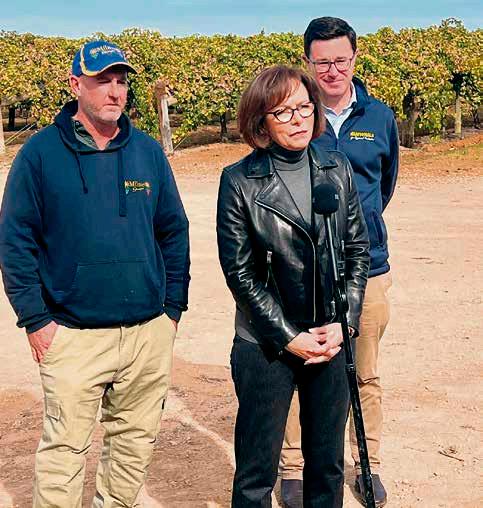
“We’ve seen this government tear up the dedicated agriculture visa, continue to use an unworkable Pacific Australia Labour Mobility, PALM Scheme, try to introduce a reckless fresh food tax, or biosecurity protection levy, and press ahead with shutting down the live sheep export industry.
“We’ve seen a tax on new vehicles, where Australian families, farmers, and tradies will pay more for SUVs, four-wheel drives and utes, as well as a truckie tax.”
Mr Littleproud said a future Coali-
“We will restore services to the regions with better childcare and health access, lowering migration rates to help ease the housing crisis”
– David Littleproud
tion government would explore all energy options, with nuclear in the mix, rather than a ‘reckless race to renewables’, including one that required 28,000 kilometres of transmission lines, destroying farming land in areas such as Mallee.
“We will restore services to the regions with better childcare and health access, lowering migration rates to help ease the housing crisis,” he said.
“A future Coalition government will introduce an importer container levy – rather than charging our own farmers to pay for the biosecurity risks of importers in the form of a terrible fresh food tax.
“A future Coalition government will also reinstate the Agriculture Visa, ensure the PALM Scheme is workable for farmers, back our live sheep industry and reinstate the live sheep export trade, deliver strong infrastructure for our regional communities and help families struggling with a costof-living crisis by tackling the drivers of inflation.”

Market workshop
Growers interested in understanding grain marketing can learn more with a free half-day workshop in Horsham on July 3.
Organised by GrainGrowers and conducted by Market Check, there will also be a workshop in Ouyen on July 2.
The workshops are designed to provide growers with various tools, market insights and solutions to grain marketing requirements and risk management plans.
GrainGrowers chief executive Shona Gawel said the workshops had been developed after grower interest in the organisation’s trade and market access work.
“There is a lot involved in grain marketing and the workshops are a great way to stay up-to-date on ways to maximise your marketing efforts,” she said.
Ms Gawel said growers attending the workshops would leave with a renewed understanding of the grain market, the factors that were driving prices and how things such as options and hedging could be applied in a beneficial manner.
She said Market Check’s years of experience in research and analysis would provide participants with practical, real-world examples of understanding the market’s current state and using available tools to implement appropriate risk management strategies.
To register, visit www.graingrowers.com.au/events.


Page 37 Wednesday, May 29, 2024 www.theweeklyadvertiser.com.au HORSHAM RURAL SHED • INDUSTRIAL SHED • ANY SHED Phone (03) 5382 4140 horsham@eurekagarages.com.au EUREKA Check out OUR New 3D design portal and build your dream shed Today! SCAN HERE Eureka has INDUSTRIAL sheds, FARM SHEDS & HAY SHEDS ALL SHEDS AVAILABLE IN A HUGE RANGE OF SIZES! SPEAK TO RICHARD TODAY! FROM $124,866 INC GST* EX FACTORY! SHEDS IN STOCK AND READY TO GO, TAKE ADVANTAGE OF OUR EOFY OFFER 21W x 40L x 6H This DogPro 95 Nelson Street, Nhill CALL 03 5391 2106 Proudly brought to you by:
TOUR: Member for Mallee Anne Webster and Nationals leader David Littleproud, right, with Irymple fruit grower Tim Milner.
Celebrating 40 years
A family business with strong ties to the community, Horsham Wool brings 130-plus years of industry experience to its customers.
The three Nelson brothers – Jamie, Brett and Ricky – have been a mainstay of Horsham Wool for decades following in the footsteps of their father Rob who started the business in May, 1984.
Rob had been a wool buyer since 1968 before starting Horsham Wool.
Jamie joined the business in 1987, then Ricky in 1990 before Brett came on board in 2004, and then Lisa Nelson and Mick Crick were employed seven years ago.
A year ago, Stephen Harvey, who brings more than 30 years of buying wool, joined the business.
Jamie, who has been judging wool for more than 15 years, said Horsham Wool was proud to be a part of Wimmera communities.
He thanked all the groups that took walking tours through Horsham Wool, and showed a genuine interest in the business.
“We are extremely thankful to those we sponsor for their continued loyalty,” he said.
“We get gratification from seeing all our communities grow, knowing we may have played a small part in that.”
Horsham Wool pride themselves on providing farmers with the best market advice on selling options, mixing wools and the best breeds, along with daily and weekly market updates.
With stores in Horsham, Nhill, Kaniva and Edenhope, Horsham Wool has customers from across the Wimmera, and can be contacted on 5382 1628.
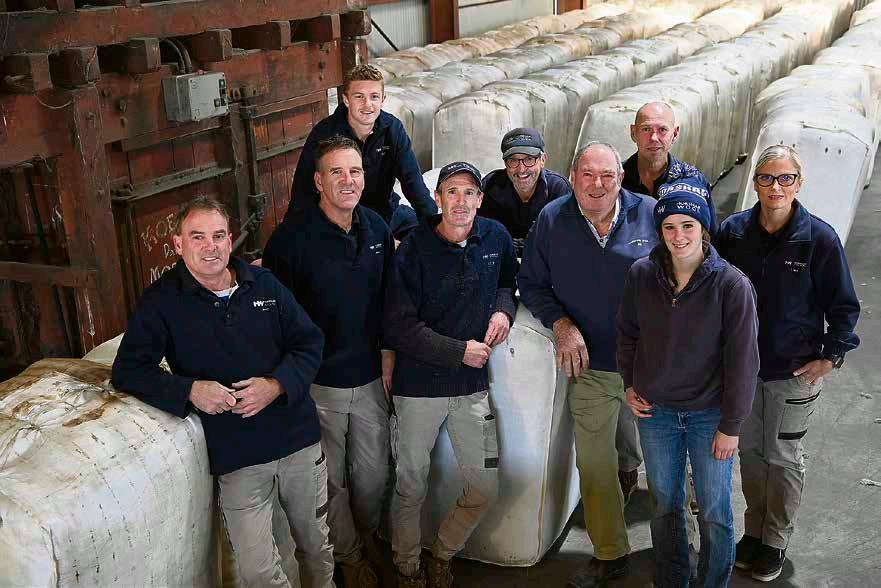


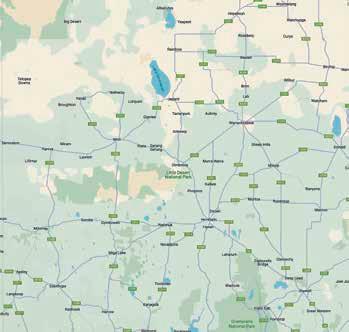
Page 38 Wednesday, May 29, 2024 www.theweeklyadvertiser.com.au ADVERTISEMENT
HORSHAM WOOL WOOL BUYERS Ph. 0417 119 216 phone: (03) 5382 1628 Servicing HORSHAM, NHILL, KANIVA & EDENHOPE Horsham: OPEN Kaniva: VISITING THURSDAY FORTNIGHTLY Nhill & Edenhope: VISITING EVERY FRIDAY Rob Nelson 0411 196 700 Jamie Nelson 0417 119 216 HORSHAM WOOL WOOL BUYERS Ph. 0417 119 216 12 KING DRIVE, HORSHAM – 5382 1628 “A family business of true locals” WOOL BUYING HORSHAM ... NOW OPEN KANIVA ... Thursday fortnightly NHILL & EDENHOPE ... Every Friday Jamie 0417 119 216 Brett ............................. 0417 344 182 Call the team at Horsham Wool for the best advice on selling your wool Kaniva To the border Hopetoun Edenhope Halls Gap Marnoo Nhill Dimboola Warracknabeal Horsham Stores in Horsham, Nhill, Kaniva & Edenhope and covering the whole Wimmera Mallee
Horsham Wool’s team: Brett Nelson, Jamie Nelson, Tyge Nelson, Ricky Nelson, Mick Crick, Rob Nelson, Stephen Harvey, Tatiarna Nelson and Lisa Nelson.


Funding returns for health centre
The National Centre for Farmer Health in Hamilton will be able to continue supporting the safety and wellbeing of farmers across the country after the State Government backflipped on a decision to strip the centre’s funding.
The centre develops interventions focusing on the prevention and early identification of risk factors associated with farming populations.
Shadow agriculture spokesperson and Member for Lowan Emma Kealy backed the strong advocacy from the centre and farming communities after the government initially failed to provide funding in the 2024-25 State Budget.
The advocacy led the state government to reverse its decision and provide $900,000 to continue the centre’s operations for another year.
Ms Kealy commended the centre’s team for its activism to ensure farmers, farm workers and their families would not lose the much-needed resource and its valuable services.
“The funding cut was deeply disappointing not just for the local Hamilton community but for farmers across the state who have been working with the centre for the past decade through its mental health initiatives, the Sustainable Farm Families program, and its many other programs that are vital in connecting farmers with practical support,” she said.
“The cut not only created huge uncertainty for the centre and all those who rely on its services, but was particularly disappointing given agriculture has the highest number of work-related deaths of any industry in Australia. We have already seen a number of on-farm deaths this year.
“Now is not a time to be cutting funding. We need to make sure we are working together to support and educate farmers to put best-practice in place so that they can be safe at work each day, and the National Centre for Farmer Health
is critical to achieving this. The reinstatement of funding for the National Centre for Farmer Health is imperative in ensuring the centre can continue its high-quality programs, evidencebased services and research initiatives that support the farming sector in dealing with the increasing health, wellbeing and safety challenges it faces.”
Prior to the reversal of the decision to cut funding, the centre’s director Alison Kennedy said they were disappointed the government hadn’t re-funded the centre beyond June 30.
“They have been a provider of core funding for a long time and that’s incredibly important to our sustainability – its not a huge amount of money in government-speak, they’ve been funding us to the tune of about $1 million a year, so it’s really a drop in the bucket of the state coffers, but it’s incredibly important support for the centre,” she said.
Dr Kennedy said the government funding helped programs to continue operating, providing certainty for research projects and retaining high quality staff.
She said the centre had other sources of funding, through grants and commercial partnerships, but they were often reliant on matching government funding.
“We actually save the government money. Our programs save the health system money through the prevention of risk to farmer health,” she said.
A government spokesperson said the funding had been found ‘outside the budget through other sources’.
“We’re continuing our support of the centre with a $900,000 investment next financial year — as we have done every year, when in government. The NCFH plays an important role identifying and preventing chronic disease and safety risk factors in the agriculture and farming community.

AWARDED: Horsham SmartFarm-based PhD student Danielle Tang was given a best student presentation award at a conference in New Zealand.
A University of Melbourne student, Ms Tang’s presentation was on how to predict faba bean grain protein quality before harvest using handheld sensors, gaining her the 2024 Best Student Presentation Award for Near Infrared Science. Ms Tang won the award at the 20th The Australian Near Infrared Spectroscopy Group, and New Zealand Near Infrared Spectroscopy Group conference in New Zealand.
Grains research update at Nhill
Grains Research and Development Corporation is hosting a grains research update event in Nhill for growers and their advisers.
One of 10 events in the southern region, the update will deliver the latest outcomes from the many research, development and extension projects to agronomists, consultants, researchers and growers.
E-Catalogue OUT NOW









The event will feature quality, evidence-based information on topical and practical growing issues presented by industry experts, as well as giving all stakeholders the opportunity to network.
The Nhill event is on July 11 from 9am until 1pm. Register at grdc.com.au/events/ list/2024/07/grdc-grains-research-update-nhill.










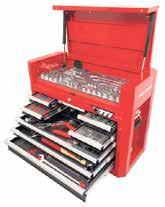
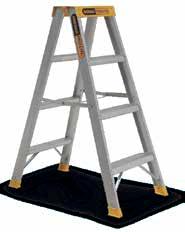





















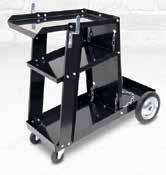


















Page 39 Wednesday, May 29, 2024 www.theweeklyadvertiser.com.au This Weeks Special DogPro Working Dog $25.00 20kg Bag 95 Nelson Street, Nhill CALL 03 5391 2106 Proudly brought to you by:
HORSHAM HORSHAM 29 WILSON STREET PH (03) 5382 2366 Email: horsham@totaltools.com.au www.totaltools.com.au HORSHAM
LOW PRICE GUARANTEE WE WILL NOT BE BEATEN! LOCALLY OWNED & LOCALLY OPERATED Scan Here for Deals
HERE SCAN HERE
SCAN HERE SCAN HERE SCAN HERE
SCAN
SCAN HERE
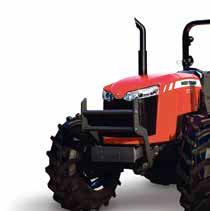


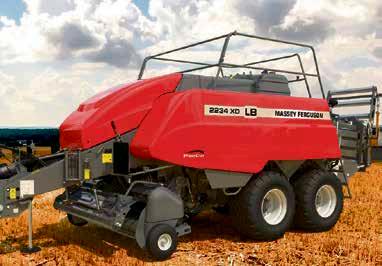




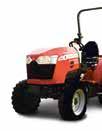









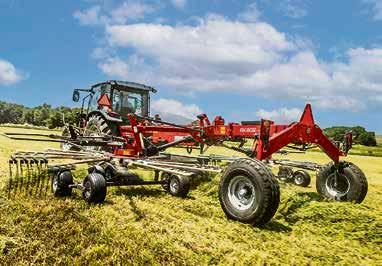


Page 40 Wednesday, May 29, 2024 www.theweeklyadvertiser.com.au JUNE 30 BROWSE OUR RANGE OF QUALITY USED AND NEW FARM MACHINERY ONLINE AT www.tractionag.com.au MF WR 265 WINDROWER MF 2234 BALER MF 802 HAY RAKE 2024 TAXOFFERSTIME TO VIEW OUR RANGE IN STOCK EOFY? Traction Ag HORSHAM 135 Stawell Road Phone: 03 5381 1385 www.tractionag.com.au Traction Ag NHILL 6 Brougham Street Phone: 03 5391 1144 Traction Ag NARACOORTE 8 Deviation Road Phone: 08 8762 0955



































































































































































































































































































